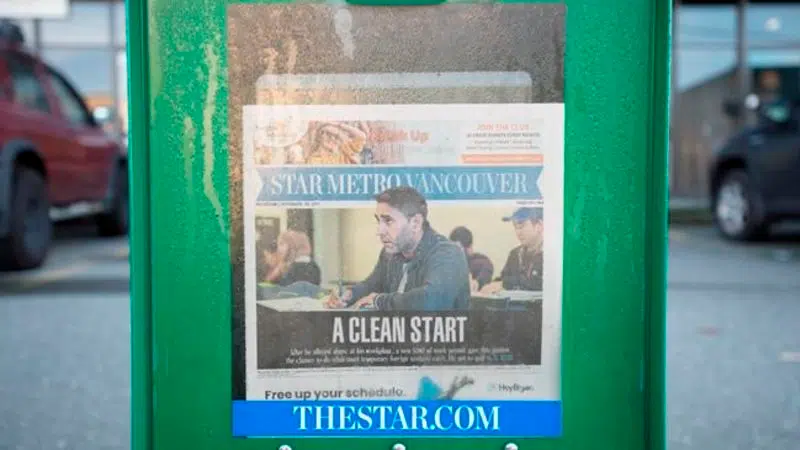
Industry experts say StarMetro, English Canada’s last free daily, will be missed
Industry experts say the pending closure of the StarMetro newspapers in Calgary, Edmonton, Vancouver, Halifax and Toronto will come at a cost to some communities that still rely on the free commuter dailies for local news.
StarMetro’s parent company Torstar — which also owns the Toronto Star — announced this week the five free newspapers will publish their final editions on Dec. 20.
The closures were a result of both a decline in print advertising volumes and a rise in readers using smartphones to consume news, the company said.
Christopher Waddell, a journalism professor at Carleton University, said the business model of a free commuter daily requires enough ad revenue to cover the entire cost of printing, delivering and managing the paper.


